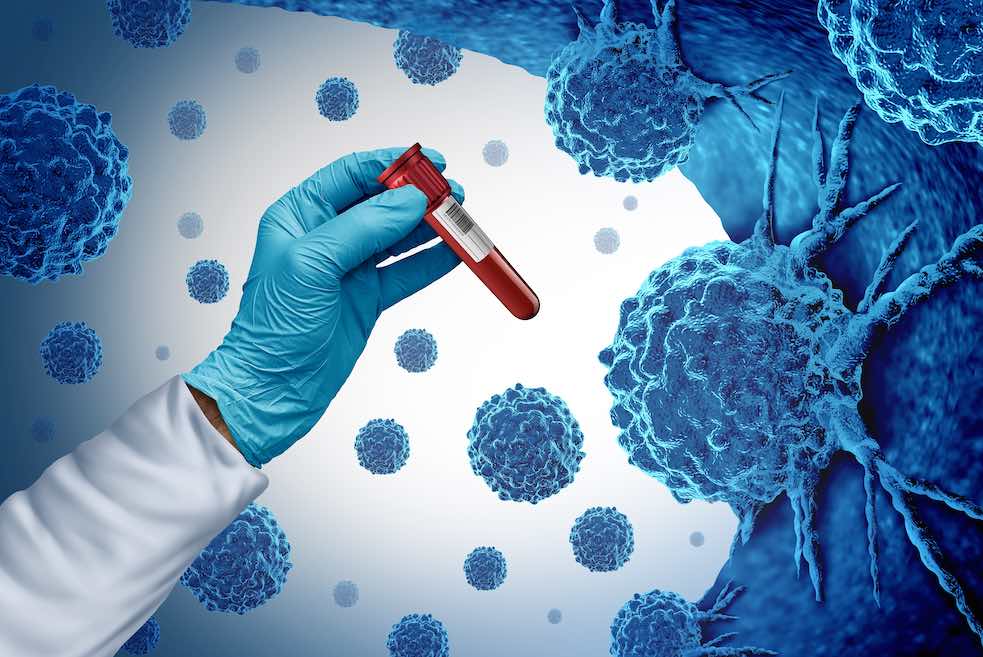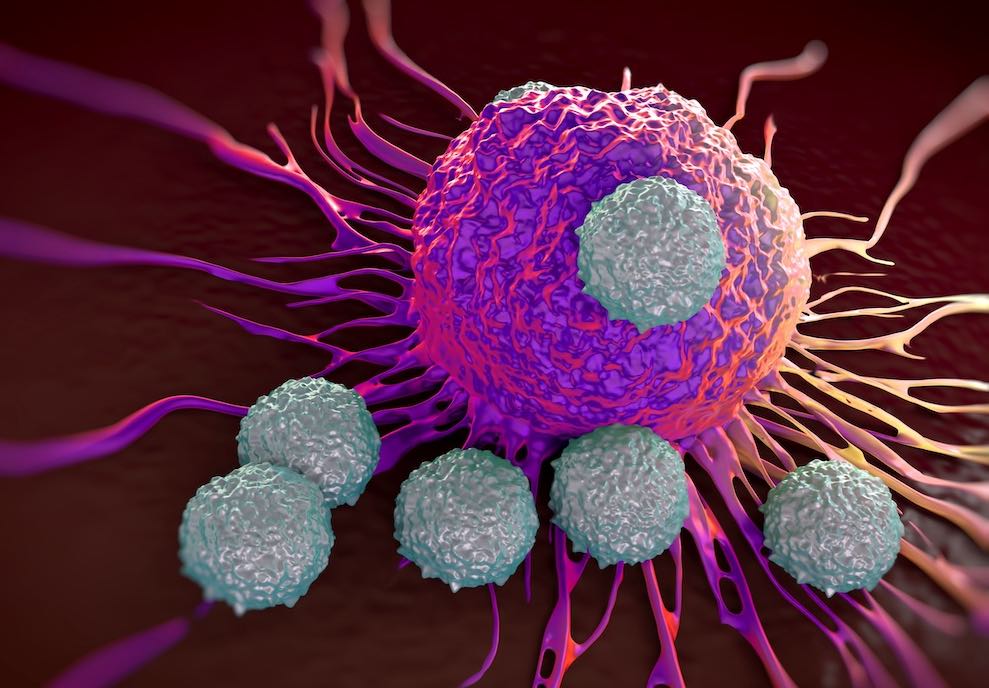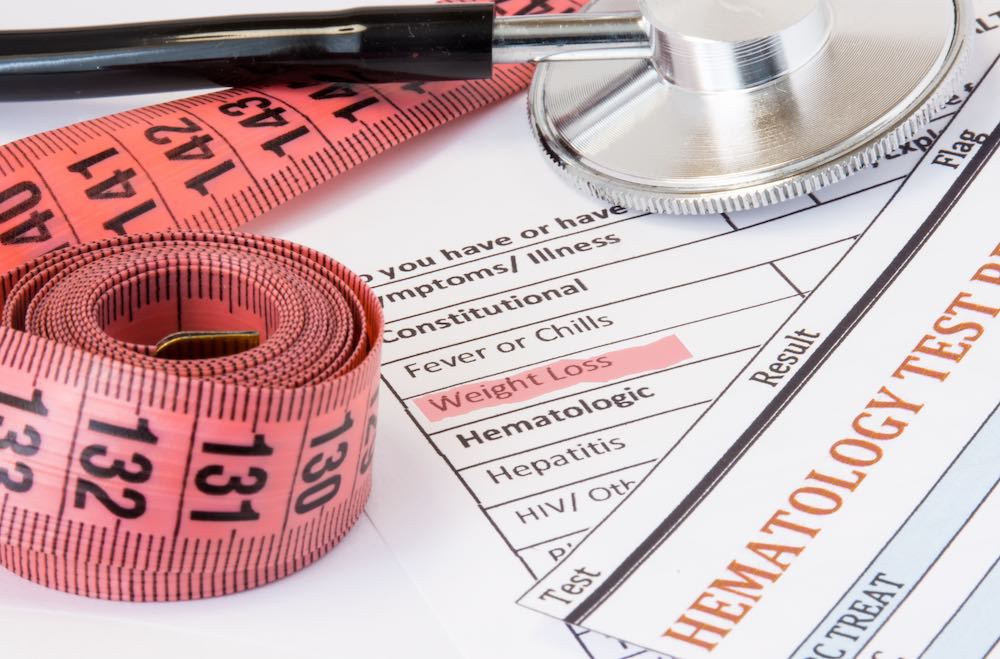News
Multi-cancer early detection blood test speeds up cancer diagnosis
A multi-cancer early detection test showed a positive predictive accuracy of 75% and negative predictive accuracy of 98% in a population referred for diagnostic follow-up after presenting to primary care with symptoms of cancer. The SYMPLIFY study, abstract 1501, presented…
Stopping immunotherapy after two years does not affect NSCLC survival
No overall survival difference was found between patients with non-small cell lung cancer who stopped immune checkpoint inhibitors at two years and those continuing treatment indefinitely. The study, abstract 9101, presented at the ASCO 2023 Annual Meeting, held June 2–6,…
Adding a CDK4/6 inhibitor to endocrine therapy improves outcomes in HR+ HER2– early-stage breast cancer
Adding the CDK4/6 inhibitor ribociclib to standard-of-care adjuvant endocrine therapy for treatment of hormone receptor-positive HER2-negative early-stage breast cancer reduced risk of recurrence by 25%. The phase III NATALEE study, abstract LBA500, presented at the ASCO 2023 Annual Meeting, held…
Bacterial decolonisation offers new strategy to prevent acute radiation dermatitis
Many cases of acute radiation dermatitis involve the common skin bacterium Staphylococcus aureus. Two linked papers in the same issue of JAMA Oncology, published online 4 May, suggest bacterial decolonisation of Staphylococcus aureus (S aureus) offers an effective approach for…
Slow decrease in breast density heightens breast cancer risk
Women with a slower decrease in breast density over time are at higher risk of developing breast cancer. The prospective cohort study, published in JAMA Oncology, online April 27, suggests that dynamic changes in breast density over time can be…
Prehabilitation programmes benefit breast cancer patients and save healthcare resources
Referring patients with early-stage breast cancer to exercise programmes prior to surgery not only improves health-related quality of life measures but also lowers overall healthcare costs. The study, abstract 1385675, was presented at the American Society of Breast Surgeons Annual…
Using ultrasound to open blood–brain barrier could be glioblastoma game changer
A novel ultrasound device temporarily opens the blood–brain barrier to allow delivery of chemotherapy. The dose-escalation phase 1 study, published in Lancet Oncology, May 2, provides evidence that use of the new French technology leads to a fourfold increase in…
Genetic targets identified for cancer-associated cachexia
Distinct patterns of genes have been shown to be active in the tumours of non-small-cell lung cancer patients who go on to develop cachexia, including high activity of the protein GDF15. The study, published in Nature Medicine, April 2023 issue,…
Antimicrobial exposure linked to poorer survival in triple negative breast cancer
Each additional total or unique monthly antimicrobial prescription is associated with inferior overall and breast-cancer-specific survival in women with triple negative breast cancer (TNBC). The study published in Nature Communications, 12 April 2023, found that the association was directly related…
Trial platform informs precision treatment of childhood cancers
A stratified medicine basket study has shown the benefit of combining two targeted therapies to treat paediatric cancers with specific molecular profiles. The study, presentation number CT019, presented at the AACR (American Association for Cancer Research) Annual Meeting 2023, held…










